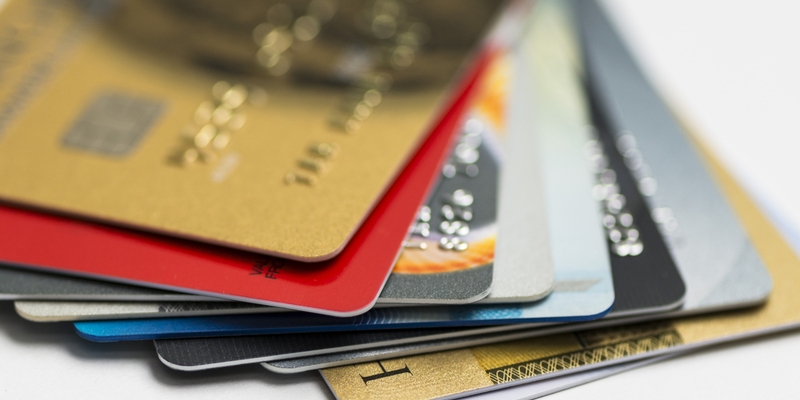
If you are not redirected within 30 seconds, please click here to continue.
Samedi: 10h – 16h HAE

If you are not redirected within 30 seconds, please click here to continue.
If you are not redirected within 30 seconds, please click here to continue.
It’s hard to imagine living in 2023 without a credit card. You can’t book travel, rent a car or shop online without one. Meanwhile, credit cards let you earn rewards and even reap some perks, depending on the credit card you choose — the trick is figuring out which one is the right match for your lifestyle and spending habits. In this article, we'll provide a helpful overview of rewards credit cards and how to choose the right one for you.
What are rewards credit cards, and how do they work?
Simply put, rewards cards are credit cards that let you earn rewards as you use them to pay for purchases.
Each credit card has its own reward structure. Some offer cash back rewards, which are applied to your credit card bill, which lowers how much you need to pay. Others offer points, which are more flexible and can be redeemed for a range of items, such as travel bookings, kitchen appliances, gift cards, entertainment and even, if you wish, cash back.
When it comes to travel cards, the rewards can be a bit more fun. Some cards offer airline miles, which you can collect to get free flights. Programs like AIRMILES and Aeroplan even allow points from some other rewards cards to be converted into their programs, giving travelers more flexibility when planning their trips. Common perks of these cards include companion passes, which let you fly with a friend for free, and access to airport lounges, making travel that much more civilized. Depending on your chosen card, you might even get free or discounted hotel stays or room upgrades.
Read more: Best credit cards for rental car insurance in Canada
How do you qualify for a rewards card?
While the specific requirements depend on the card you apply for, most credit card providers will look at the same things:
- Minimum income. Some credit cards require a minimum income, for example, $60,000 per year. Sometimes, a higher-tier version of the same card will offer better perks if you have a higher income level.
- Good to excellent credit score. Before approving you as a cardholder, the credit card company will investigate your credit score. Some cards require a better credit score than others – usually, the better the perks, the higher the score required.
They use this information to determine if they think you can pay the annual fee (often, the better the rewards card, the more likely it has a fee of $100/year or more) and determine how risky it would be for them to extend credit to you. At this point, they’ll also assess you for an introductory credit limit, which may increase as you pay your bills on time.
How to choose the best rewards card – for you
People always want to know which credit card is the very best. Unfortunately, there’s no one card that will work for every consumer. Since your lifestyle and financial situation are unique, you’ll have to consider the following:
- Your spending habits: Look for a rewards credit card that offers higher earn rates on the categories you spend the most on, such as groceries, gas, or dining out. Or if you travel a lot, are discounted travel costs going to make more of a difference to your bottom line?
- Your priorities: If you value travel, the right travel rewards credit card can help you save money on travel insurance, flights, and hotels. If you want more money going back into your pocket, a cash back rewards credit card kicks you a small percentage back when you use your card on everyday items. And that's just the beginning of what the right credit card can offer: Some programs also offer access to exclusive dining and entertainment events, discounts with specific retailers, and special concierge services.
- The number of credit cards you want to keep: Some people prefer to have one rewards credit card that covers all their spending, while others keep multiple credit cards for different categories. For example, you might book flights on a travel card and pay for restaurants with one that gives you 4% cash back on dining out; or keep one premium rewards card and one no-fee rewards card to capitalize on all your spending categories and reap different perks. This can be a smart way to maximize points — as long as you stay on top of your statements and pay off all your monthly bills.
- Welcome offers: It’s a common practice for rewards credit cards to offer welcome bonuses, such as bonus points or cashback, for signing up and/or meeting a spending requirement. This can be a great way to jumpstart your earnings – some programs even offer enough points for a free flight or waive/rebate the annual fee for the first year.
One way to assess your options is to use a credit card comparison tool: A credit card comparison tool can help you compare different credit cards and their features to find the best fit for you.
Read more: In the Ring: National Bank World Elite Mastercard versus HSBC World Elite Mastercard
Risks to consider before diving in
All these rewards can sound exciting, but before you start "travel hacking” and maximizing those perks, there are some potential risks or downsides:
- If you open too many cards at once, it can harm your credit score.
- Credit card companies want you to spend. Spend more, earn more, right? Just make sure you can pay your bill in full each month. Otherwise, you’ll pay high interest fees and risk damage to your credit score.
- Some rewards credit cards charge annual fees up to several hundred dollars a year. Depending on how you use the card, you may be unable to offset the fees with the rewards you earn, so do some careful calculations before signing up.
Credit cards can help you save money, earn rewards on everyday purchases, and offer fun perks like exclusive access to swish lounges and cool events. However, it all comes down to choosing the right card for your spending goals and habits.
Like with any credit product, there are risks. You need to be aware of what you’re signing up for, but hopefully, reading this guide has prepared you to pick the right card(s) and get you started in reaping those juicy rewards.
Latest Articles
Get money-saving tips in your inbox.
Stay on top of personal finance tips from our money experts!











